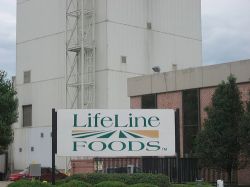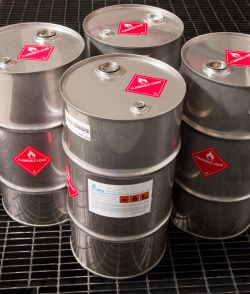![]() Some tractor pullers will be running green … and I’m not just talking about the John Deere machines out there.
Some tractor pullers will be running green … and I’m not just talking about the John Deere machines out there.
This article from Wallaces Farmer says the National Tractor Pullers Association’s 2010 season will feature a new competition division, the Light Pro Stock class, and with sponsorship from the United Soybean Board (USB), those tractors will be running on soy biodiesel:
“I think tractor-pull enthusiasts will be very impressed by the performance of biodiesel,” says USB director Russ Carpenter, a soybean farmer from New York. “Biodiesel, in many ways, is superior to traditional diesel, and what better way to demonstrate that superiority than to push it to the max the way tractor pullers push their fuel to the max?” According to NTPA General Manager Gregg Randall, many pullers already realize the performance benefits of biodiesel and use biodiesel in competition. “We sent out a questionnaire to our NTPA Grand National Super Farm competitors, and 60% said they use biodiesel fuel in competition,” says Randall. “Many pullers believe in the fuel, and they use it in competition. The consumption should grow with the sponsorship of the Light Pro Stock class.”
The use of soy biodiesel makes sense since it is still the most popular feedstock for biodiesel and the fact that many of the drivers and fans have direct connections to the soybean industry.








